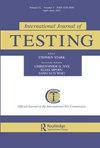Incongruence Between Native and Test Administration Languages: Towards Equal Opportunity in International Literacy Assessment
IF 1.4
Q2 SOCIAL SCIENCES, INTERDISCIPLINARY
引用次数: 5
Abstract
Previous research has primarily addressed the effects of language on the Program for International Student Assessment (PISA) mathematics and science assessments. More recent research has focused on the effects of language on PISA reading comprehension and literacy assessments on student populations in specific Organization for Economic Cooperation and Development (OECD) and non-OECD countries. Recognizing calls to highlight the impact of language on student PISA reading performance across countries, the purpose of this study was to examine the effect of home languages versus test languages on PISA reading literacy across OECD and non-OECD economies, while considering other factors. The results of Ordinary Least Squares regression showed that about half of the economies demonstrated a positive and significant effect of students' language status on their reading performance. This finding is consistent with observations in the parallel analysis of PISA 2009 data, suggesting that students' performance on reading literacy assessment was higher when they were tested in their home language. Our findings highlight the importance of the role of context, the need for new approaches to test translation, and the potential similarities in language status for youth from OECD and non-OECD countries that have implications for interpreting their PISA reading literacy assessments.母语与考试管理语言的不一致:迈向国际读写能力评估的机会均等
先前的研究主要针对语言对国际学生评估计划(PISA)数学和科学评估的影响。最近的研究重点是语言对PISA阅读理解的影响,以及对经济合作与发展组织(OECD)和非OECD国家学生群体的识字评估。认识到各国都呼吁强调语言对学生PISA阅读成绩的影响,本研究的目的是在考虑其他因素的同时,考察母语与测试语言对经合组织和非经合组织经济体PISA阅读素养的影响。普通最小二乘回归的结果表明,大约一半的经济体表现出学生的语言状态对他们的阅读成绩的积极而显著的影响。这一发现与PISA 2009年数据的平行分析中的观察结果一致,表明当学生用母语进行测试时,他们在阅读能力评估方面的表现更高。我们的研究结果强调了语境作用的重要性、测试翻译的新方法的必要性,以及经合组织和非经合组织国家青年在语言地位方面的潜在相似性,这对解释他们的PISA阅读能力评估有影响。
本文章由计算机程序翻译,如有差异,请以英文原文为准。
求助全文
约1分钟内获得全文
求助全文
来源期刊

International Journal of Testing
SOCIAL SCIENCES, INTERDISCIPLINARY-
CiteScore
3.60
自引率
11.80%
发文量
13
 求助内容:
求助内容: 应助结果提醒方式:
应助结果提醒方式:


